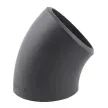-
Cangzhou Yulong Steel Co., Ltd.
-
Phone:
+86 13303177267 -
Email:
admin@ylsteelfittings.com
- English
- Arabic
- Italian
- Spanish
- Portuguese
- German
- kazakh
- Persian
- Greek
- French
- Russian
- Polish
- Thai
- Indonesian
- Vietnamese
- Zulu
- Korean
- Uzbek
- Hindi
- Serbian
- Malay
- Ukrainian
- Gujarati
- Haitian Creole
- hausa
- hawaiian
- Hebrew
- Miao
- Hungarian
- Icelandic
- igbo
- irish
- Japanese
- Javanese
- Kannada
- Khmer
- Rwandese
- Afrikaans
- Albanian
- Amharic
- Armenian
- Azerbaijani
- Basque
- Belarusian
- Bengali
- Bosnian
- Bulgarian
- Catalan
- Cebuano
- China
- China (Taiwan)
- Corsican
- Croatian
- Czech
- Danish
- Esperanto
- Estonian
- Finnish
- Frisian
- Galician
- Georgian
- Kurdish
- Kyrgyz
- Lao
- Latin
- Latvian
- Lithuanian
- Luxembourgish
- Macedonian
- Malgashi
- Malayalam
- Maltese
- Maori
- Marathi
- Mongolian
- Myanmar
- Nepali
- Norwegian
- Norwegian
- Occitan
- Pashto
- Dutch
- Punjabi
- Romanian
- Samoan
- Scottish Gaelic
- Sesotho
- Shona
- Sindhi
- Sinhala
- Slovak
- Slovenian
- Somali
- Sundanese
- Swahili
- Swedish
- Tagalog
- Tajik
- Tamil
- Tatar
- Telugu
- Turkish
- Turkmen
- Urdu
- Uighur
- Welsh
- Bantu
- Yiddish
- Yoruba

Nov . 11, 2024 10:15 Back to list
api 5l l360
Understanding API 5L and L360 A Critical Component in Pipeline Engineering
The API 5L specification, developed by the American Petroleum Institute, represents a crucial standard for the manufacturing of line pipes in the petroleum and natural gas industries. It delineates the necessary requirements for the production of seamless and welded steel pipes, which are predominantly utilized for the transport of oil and gas, making it an integral part of pipeline engineering. Among the various grades described in the API 5L specification, L360 is particularly noteworthy due to its properties and applications.
What is API 5L?
API 5L serves as a guideline for the production of pipes suitable for various applications, including those used in oil and gas transmission, as well as other line pipe services. This specification is divided into two main categories PSL1 (Product Specification Level 1) and PSL2 (Product Specification Level 2). While PSL1 outlines standard requirements, PSL2 incorporates additional specifications for quality and testing, aimed at ensuring pipeline integrity and safety.
The Significance of Grade L360
Within API 5L, grades are denoted not only by their type but also by a number representing their minimum yield strength. The grade L360, specifically, has a minimum yield strength of approximately 360 megapascals (MPa) or about 52,200 pounds per square inch (psi). This high yield strength makes L360 pipelines particularly suited for high-pressure applications, typically found in environments where the transport of crude oil and natural gas must withstand extreme conditions.
L360 is a medium to high-strength steel, offering excellent weldability and forming characteristics. These properties make it a preferred choice among engineers when designing pipelines that require both robustness and durability. Employing L360 pipelines helps reduce the risk of leaks and failures, which are crucial considerations in pipeline engineering. Moreover, the ability to withstand high internal pressures ensures that the transported media reaches its destination efficiently and safely.
Applications of L360
api 5l l360

Pipelines utilizing API 5L L360 are commonly found in long-distance transportation systems. They are instrumental in moving crude oil and natural gas from remote production points to refineries and distribution centers. Additionally, L360 pipes are also used in the transportation of other fluids such as water, which emphasizes their versatility beyond just hydrocarbon transportation.
In the context of natural gas drilling and distribution, L360 grade pipes play a vital role in the integrity of the overall pipeline system. With increasing demands for energy and the imperative to minimize environmental impacts, using high-strength materials like L360 helps support sustainable practices. The robust nature of L360 pipes allows for thinner wall construction, thereby reducing the overall weight and material usage while maintaining necessary safety standards.
Quality Assurance and Testing
To ensure the reliability of L360 pipes, stringent quality control measures are in place during manufacturing, as mandated by the API 5L specifications. This includes rigorous testing methods such as hydrostatic testing, non-destructive testing (NDT), and various mechanical property assessments. The results from these tests provide insights into the material's strength, ductility, and overall performance under operational conditions.
Furthermore, compliance with international standards and regulations is essential in the pipeline industry. It ensures that L360-grade pipes are suitable for their intended applications and emphasizes the need for manufacturers to adhere to ethical and best practices in their production processes.
Conclusion
The API 5L L360 grade represents a vital element in modern pipeline engineering, contributing to the safe and efficient transport of oil, gas, and other fluids. Its high yield strength, excellent weldability, and adaptability for various applications make it a preferred choice in the industry. As the demand for energy continues to grow alongside the challenges of maintaining environmental standards, the importance of reliable materials like L360 will only become more significant in the future of pipeline projects globally. The commitment to ongoing innovation and adherence to rigorous standards will facilitate the development of increasingly efficient and sustainable pipeline systems.
Latest news
-
ANSI 150P SS304 SO FLANGE
NewsFeb.14,2025
-
ASTM A333GR6 STEEL PIPE
NewsJan.20,2025
-
ANSI B16.5 WELDING NECK FLANGE
NewsJan.15,2026
-
ANSI B16.5 SLIP-ON FLANGE
NewsApr.19,2024
-
SABS 1123 FLANGE
NewsJan.15,2025
-
DIN86044 PLATE FLANGE
NewsApr.19,2024
-
DIN2527 BLIND FLANGE
NewsApr.12,2024
-
JIS B2311 Butt-Welding Fittings LR/SR 45°/90° /180°Seamless/Weld
NewsApr.23,2024











